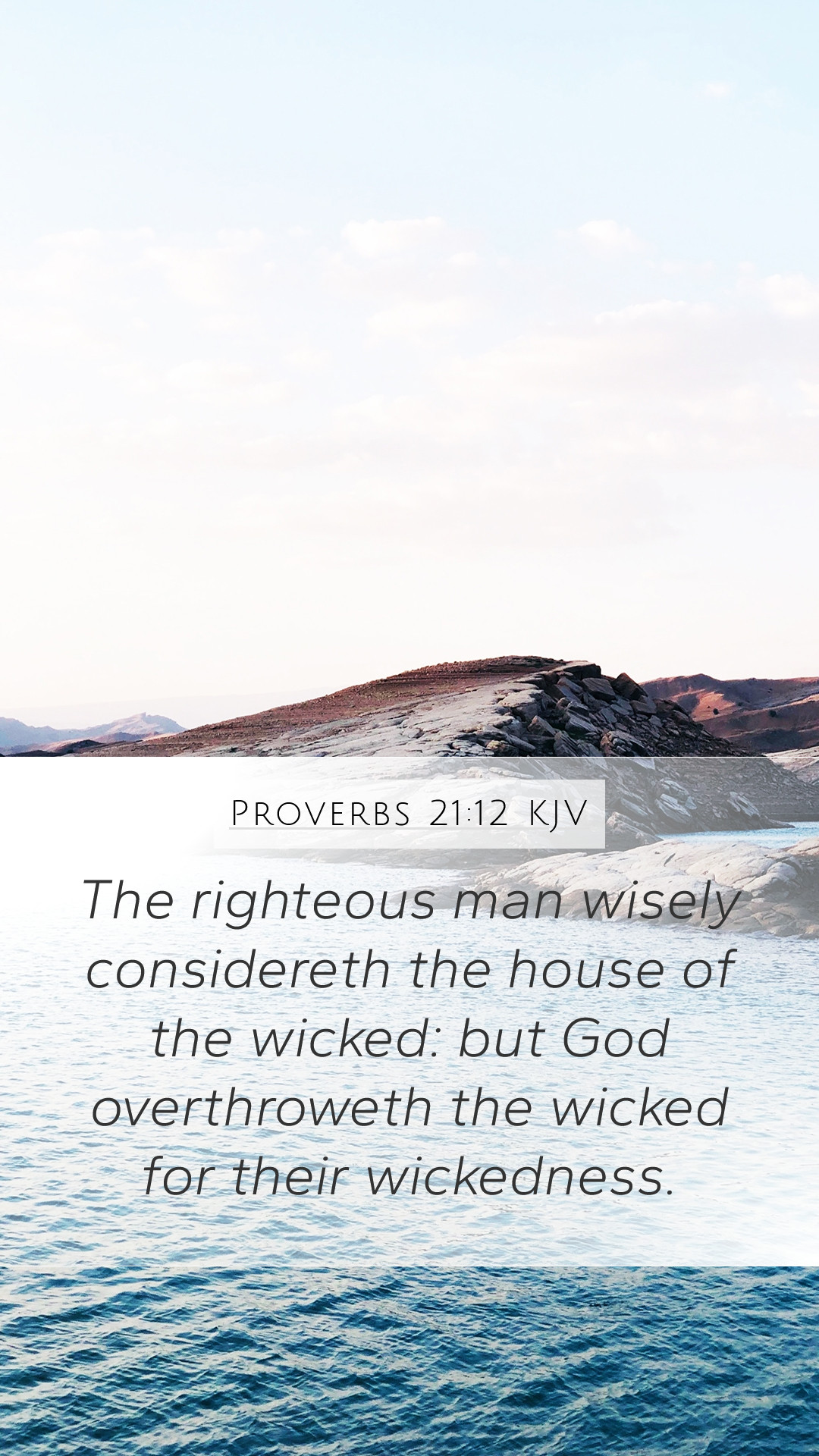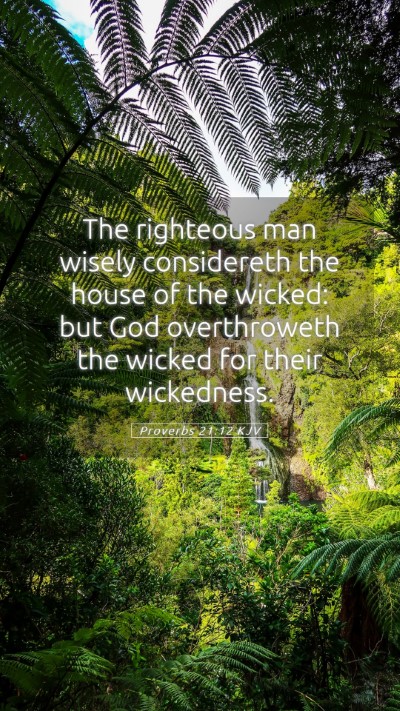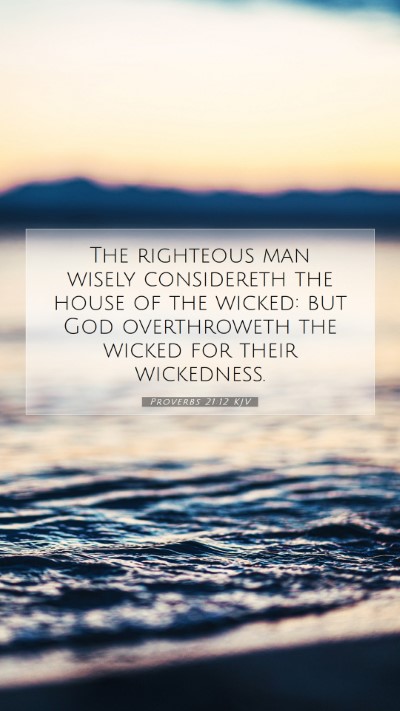Understanding Proverbs 21:12
Proverbs 21:12 states, "The righteous man wisely considers the house of the wicked: but God overthroweth the wicked for their wickedness."
This verse highlights the contrast between the righteous and the wicked, emphasizing wisdom in judgment and the certainty of divine justice. The insights combined from various public domain commentaries offer a deeper understanding of this scripture, illuminating its meaning and implications.
Summary of the Verse
In this verse, Solomon instructs that a wise and righteous person takes into account the fate of the wicked. The reflection is not merely an observation; it serves as a cautionary note about the temporal power and eventual downfall of the wicked due to their actions. Understanding this verse requires a dive into not just the immediate meaning but also its implications within the broader scriptural context.
Commentary Insights
-
Matthew Henry:
Henry comments on the importance of discernment in the life of the righteous. He explains that the wise will take note of the instability of the wicked. The righteous man is not to be swayed by appearances but must recognize the temporal successes of the wicked, understanding that such success is fleeting and ultimately unrighteous.
-
Albert Barnes:
Barnes emphasizes the observant nature of a righteous person. By "wisely considering the house of the wicked," the righteous person deliberates about their end. This point urges believers to reflect on the nature and eventual judgment of the wicked, urging vigilance against the allure of sinful lifestyles.
-
Adam Clarke:
Clarke elaborates that the "house of the wicked" represents not just physical structures, but symbolizes the lifestyle and reputation built on injustice. He notes the duality of the meaning, where while the wicked may thrive momentarily, their ultimate fate is determined by God’s justice—a theme prevalent throughout the Proverbial literature.
Lessons from Proverbs 21:12
This verse serves as a reminder of the ultimate accountability each individual has before God. In Bible study groups, it can facilitate discussions around:
-
How the righteous can navigate a world where the wicked seem to prosper.
-
The importance of perspective in evaluating wealth and success, where morality and righteousness surpass temporary gains.
-
The assurance of God's justice and the future of the unrighteous.
Application in Daily Life
Understanding scripture and applying it to daily life is essential for believers. Proverbs 21:12 encourages individuals to maintain their righteousness despite external temptations, reminding them that God’s justice prevails over earthly justice:
-
Reflect regularly on the moral choices you face, understanding their long-term impacts.
-
Engage with Bible study tools and resources to deepen your understanding of biblical wisdom and its practical applications.
-
Formulate Bible study plans that encourage a reflective attitude towards personal integrity and righteousness in light of this scripture.
Related Bible Verses
Proverbs 21:12 resonates with several other scriptural passages that reinforce its themes:
- Psalm 37:1-2: "Fret not thyself because of evildoers... for they shall soon be cut down like the grass, and wither as the green herb."
- Proverbs 10:30: "The righteous shall never be removed: but the wicked shall not inhabit the earth."
- Galatians 6:7: "Be not deceived; God is not mocked: for whatsoever a man soweth, that shall he also reap."
Conclusion
Proverbs 21:12 serves as a profound reminder of the Divine order and judgment in a world fraught with moral ambiguity. The commentary from respected theologians like Matthew Henry, Albert Barnes, and Adam Clarke enriches our understanding of the text. By studying this verse and its implications, we can deepen our comprehension of righteousness and the temporary nature of wickedness, ultimately guiding our actions and choices in alignment with biblical teachings.


